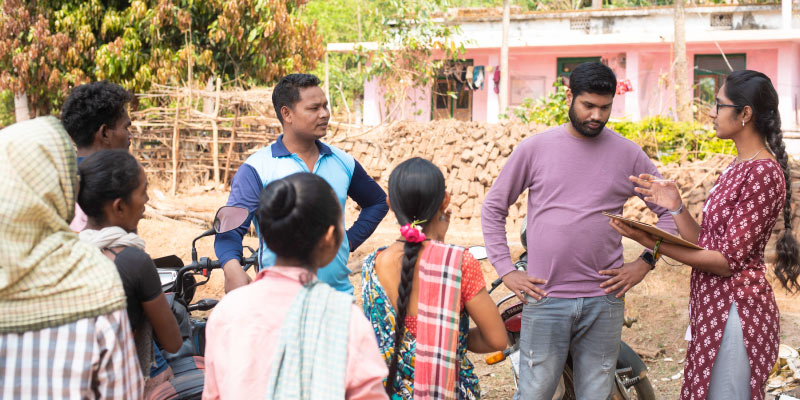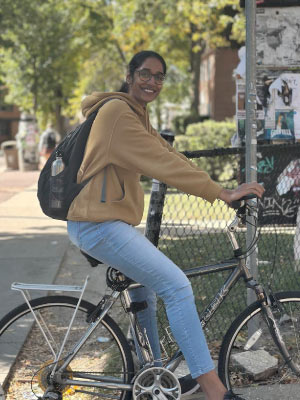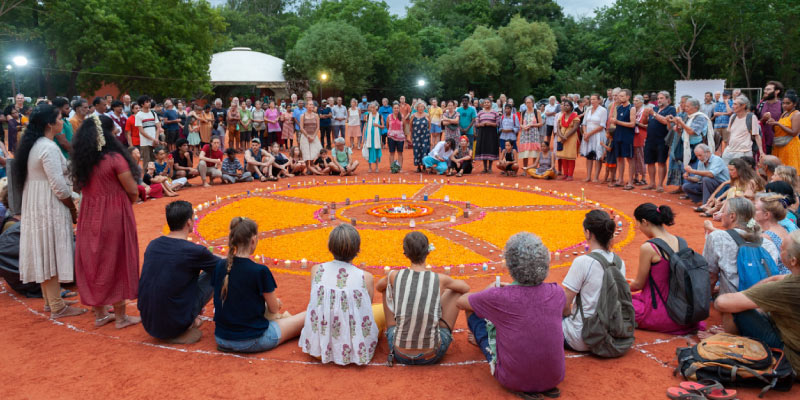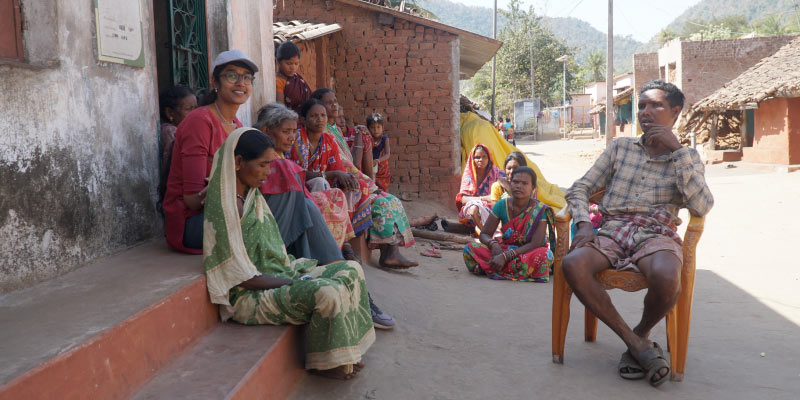
“When I was young, I never walked on roads,” says Induja Gandhiprasad, a graduate student pursuing a master’s degree in environmental conservation. “If I had to go to our family’s farm, I would always walk through the landscape and the fields,” she says. “I was never stopped by anyone saying ‘This is my territory, you shall not enter.’” Gandhiprasad grew up in a rural, agricultural village in Southern India, surrounded by a backdrop of mountains and lush greenery. In her village, the concept of “borders” was unknown — she never felt unwelcome in the harmonious environment around her, and she felt a deep connection to her community and the natural world from a young age.

But today, Gandhiprasad’s village is “unrecognizable.” The farming practices have decreased drastically, and the lush greenery has been replaced by new buildings and real estate. “What was once lush and green is all brown now,” she says.
To Gandhiprasad, the changes to her community were accompanied by a sense of loss. “The developments have made positive impacts on so many lives, but our values have been cut off,” she says. “My value systems were connected to the landscape I grew up in. As I started losing the landscape, I felt there was a bit of a disconnect from my own values.”
To bring some of these values back to her community — and others across India — Gandhiprasad decided to pursue a degree in architecture. She felt that new buildings weren’t being built consciously, and she wanted to protect the natural environment from new developments. “In the five years that I studied architecture, I traveled a lot within India and saw many different places, cultures, problems, and solutions,” she says. “I got a bigger picture of what is needed for positive change: it’s not just the buildings, but also everything the buildings are connected to. I realized buildings weren’t my interest — I needed to find something bigger.”
“There’s a sense of collectiveness that reassures me that beyond borders, we’re all connected through a single goal.”
— Induja Gandhiprasad
After graduating, Gandhiprasad found “something bigger” in Auroville, India, working on urban planning projects that helped emerging cities balance environmental preservation with urban growth. She took up a project focusing on providing drinking water access to marginalized communities across India. “That project gave me the opportunity to travel to remote places, what I call ‘roads less taken,’” Gandhiprasad says. “Sometimes, there weren’t even roads to reach certain communities — we’d have to find our way trekking through the forest.”

This project was the deciding factor that pushed Gandhiprasad to further her education at the University of Wisconsin–Madison’s Nelson Institute for Environmental Studies. Throughout her career she had often second-guessed her readiness to pursue new opportunities — but after working with many indigenous communities in India, she was inspired to take direct action. “These communities lived in such a great harmony with the environment they were blessed with. I felt that there was something very pure about this kind of connection between nature and people, and I wanted to bring this value of stewardship back to communities in whatever way possible,” she says. To her, pursuing a master’s degree was the next step towards reaching that goal.
Gandhiprasad started the Nelson Institute’s environmental conservation professional program last summer, drawn to the program’s action-based approach to learning and the institute’s legacies of Aldo Leopold and Gaylord Nelson. “Coming from another country, I wanted to get the best exposure to knowledge that I could find,” she says. “I also had a lot of support from my community in Auroville, and I would give them a lot of credit for preparing me to come here.”

Since starting her degree at the Nelson Institute, Gandhiprasad has been most impressed with the welcoming environment and warmth within her cohort. Her cohort consists mostly of mid-career professionals like herself, and she’s found a lot of value in learning from them, their knowledge, and their experiences. “The openness in learning has been beautiful for me, and the sharing doesn’t just stop at a classroom level,” Gandhiprasad says. “There’s a sense of collectiveness — which is very important for this profession — that reassures me that beyond borders, we’re all connected through a single goal.”
After completing her master’s degree Gandhiprasad plans to work in habitat and landscape restoration or water management, bringing knowledge of natural systems to communities around the world. “The ecological integrity of many places around the world is being destroyed, which is very concerning,” she says. “Having a sense of stewardship and a deeper understanding of these systems are both crucial in effecting positive changes. It brings people a different level of consciousness that would make us better consumers, which would contribute less to the damage we’ve caused.”
To Gandhiprasad, protecting the environment is an international responsibility. “In today’s world we have a sense of territory and a lot of borders,” she says, “but we need to fight beyond borders because a climate crisis in one place is going to affect people everywhere.” By breaking down borders between communities, countries, and even continents, collective action can result in powerful efforts to protect and restore our environment. “I know there are millions of people who are thinking like me,” Gandhiprasad says. “The more we dream, the more we can bring those dreams into reality.”